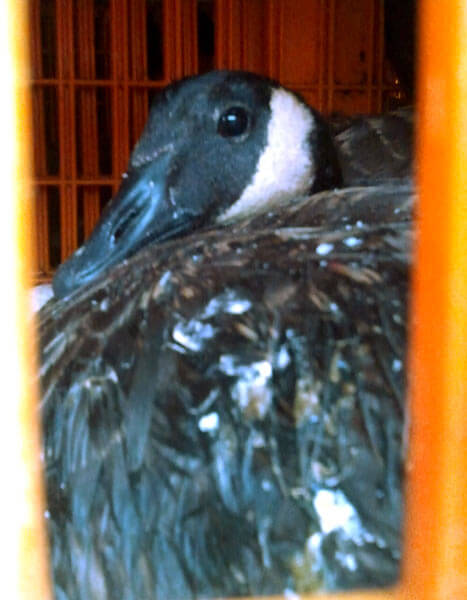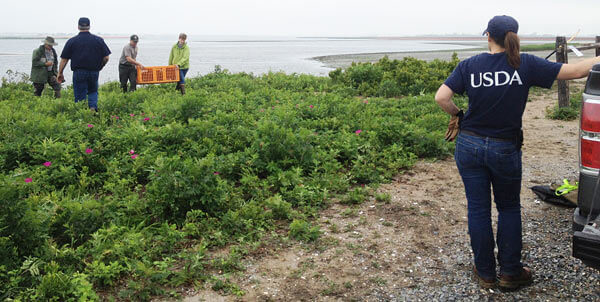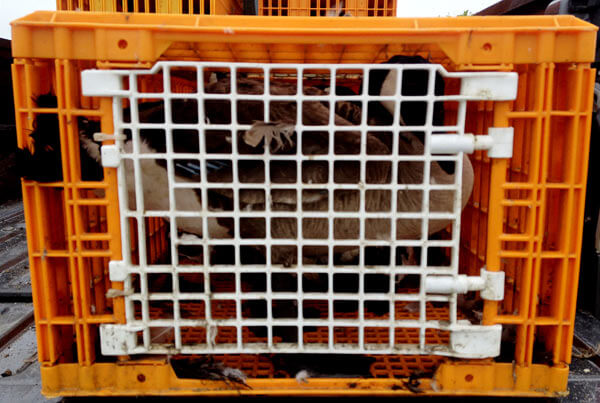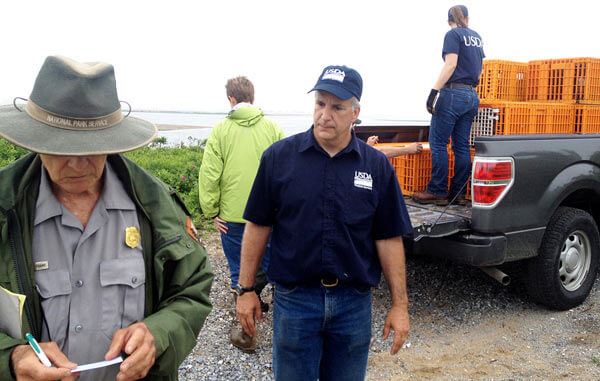By Rich Bockmann
Federal wildlife agents removed hundreds of geese thought to be a hazard to air safety at Kennedy Airport last week, but an animal-rights activist who filmed them said the government is setting the fowl up as a red herring.
In the four years since Capt. Chelsey “Sully” Sullenberger landed US Airways Flight 1549 on the Hudson River after an apparent bird strike, the U.S. Department of Agriculture has removed thousands of Canada geese in New York City.
On June 2, agents removed 231 geese from the Jamaica Bay Wildlife Refuge near JFK and took them to a poultry processing facility, a spokeswoman for the USDA said.
“For aviation, Canada geese are among the most hazardous birds. Although goose-aircraft strikes aren’t common, more than half are with multiple geese and three-quarters have an effect on the flight or cause damage,” said USDA spokeswoman Carol Bannerman.
David Karopkin, founder of the advocacy group GooseWatchNYC, got wind of the culling and headed to the Jamaica Bay reserve with his video camera. He recorded agents removing the geese in what he called a hollow showing of safety efforts.
“The potential for a bird to collide with an airplane has served as the justification for this colossal effort to kill geese and other birds. To that we say ‘shenanigans,’” he said. “It doesn’t seem to have any impact on safety. They’re just touting that what they’re doing is about safety.”
In the wake of the “Miracle on the Hudson” accident that occurred after Sullenberger took off from LaGuardia Airport, the National Transit Safety Board issued a report concluding a bird strike was the probable cause and made a number of recommendations, including one that airports develop and implement a wildlife hazard management plan.
Working with the Port Authority, the city has opened its parks to the USDA and the U.S. Department of the Interior, which oversees the National Parks Service, has done the same for the Jamaica refuge.
Agents remove the migratory geese in June and July when the birds are molting and have young goslings they will not abandon.
Karopkin contends the removal of the birds does nothing in the long term and said there are other things the government could be doing.
“If the leaders truly cared about air safety, there are other initiatives that would improve public safety,” he said. “Killing geese is probably somewhere near the bottom of the list.”
Karopkin cited alternatives, such as modifying the habitats near airports with grasses the geese do not like so they will go somewhere else, but Bannerman said the birds have in the past torn up grasses planted by the Army Corps. of Engineers.
The USDA said its wildlife agents began treating goose eggs near LaGuardia Airport with oil in 2001, and since then the agency has had to remove fewer birds.
Reach reporter Rich Bockmann by e-mail at rbockmann@cnglocal.com or by phone at 718-260-4574.






































